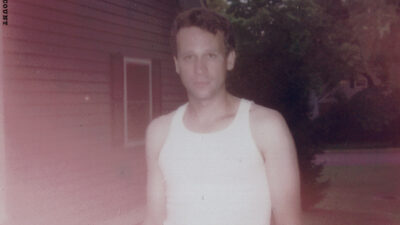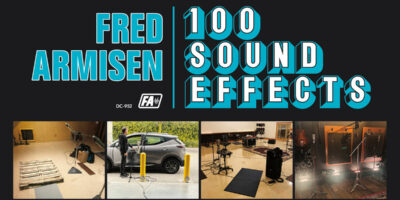This article previously appeared on Crossfader
Genre: Art Pop
Favorite Tracks: “Heart Attack,” “Look at Your Hands,” “Colonizer, “Home”
tUne-yArDs’ music always sounded like a potpourri of sounds and influences, as if frontwoman Merrill Garbus had stumbled upon this trove of sonic and cultural curio from which she could pick and repurpose for her own art—a collage, a totally colorful amalgam, right down to the album art itself. Folk, electronica, and even some calypso are just some of the genres that have meshed their way into Garbus’s typical worldbeat armature, but perhaps what has had the largest stamp on her canvas was what she was hearing out of African radio. “Really what influenced me more than anything was . . . Congolese pop” as she told Mother Jones in 2012, “. . . that’s a music that still has really influenced me stylistically.” And therein would lie Garbus’s central predicament. While once resourceful and fresh, she reflects on her gumption with more negativity than fondness on I CAN FEEL YOU CREEP INTO MY PRIVATE LIFE—she sees her creativity as founded on stolen goods.
She’s definitely not the first person to make music with strong ties to a culture a world over, but it’s rare to see any artist confront, or accept, the possibility that it’s actually being taken and then make this ideal the entire basis of their next pursuit. She’s skimmed the topic before on WHOKILL’s “Real Thing,” where she grapples with her music’s integrity and components, “you can’t hold tight to what you have, cause there is nothing there to grab.” And it raises an even larger question in art itself: Does originality exist? And if it doesn’t, should we care?
In another recent interview with Vox, Garbus elaborated further on this: “I’m a white woman taking music that comes from communities of color, queer communities, and I am—as so many musicians do—taking those influences and turning them into music that’s under my name.”
I had always considered her music singular and idiosyncratic, but in this admittance of white privilege and cultural appropriation, Garbus totally inverts that notion over the course of I CAN FEEL YOU CREEP INTO MY PRIVATE LIFE. “Colonizer,” one of her most salient broadsides, literally opens with, “I use my white women’s voice to tell stories of travels with African men.” This polemic of white encroachment continues on “ABC 123” (“all I know is white centrality”) and on the following “Now as Then,” where she plainly avers, “I am the exception / That’s for me, that’s also for me.”
On I CAN FEEL YOU CREEP INTO MY PRIVATE LIFE’s opener, “Heart Attack,” Garbus toughs through the plight of activism fatigue, singing, “giving me a heart attack, don’t let me lose my soul.” At first she’s racing against a click-clacking, piano-infused thrust, but then enervation strikes in the midsection: “I’m only human.” But not before long, the song picks up again and she’s wailing her way into a nexus of synths, handclaps, and oscillating strings. It’s straightforward dance music, Garbus just lends it a much-needed pathos.
Each album since her 2009 debut has seen her focusing her sound—taking less from more and more from less it seems—leading her towards her most electronic-based work thus far. “Look At Your Hands” whizzes around with glittery ‘80s synths and thumping drums; “Colonizer” may have white guilt coursing through it’s lyrics, but the irradiant classic-house beat swiveling behind her makes it for an infectious head-nodder.
While some of the tracks here more than suggest her radio-crossover potential, others come off more grating than groovy, the content taking a hit in turn. Closer “Free” swathes its more cathartic moments in distortive irritants and the message itself gets muddled in passing. Similarly, “Honesty”’s alarming beat, flurried squelches, spoken word interjection, and incessant refrain of its title in the end all render whatever it was trying to say as lost. That intimate, organic earthiness I’ve come to expect from her has been forfeited for cold programming and bustling production; in the event that this is one of her most explicitly inward-looking albums, a decision to scale it down would’ve done more good than anything.
Her voice still makes for some of the most striking texture here, and the occasional filtering it’s put through further emphasizes its orotund flexibility. But more often than not, her vocals are marred by all the cloistering music. Perhaps it’s to demonstrate how she feels as a woman (or simply a person) in the milieu at the moment, but I’d personally rather hear what she has to say without all the sonic fuddle. She’s at her best on the roomy album highlights “Hammer” and “Home.” Their overall slow tempos and steady incorporation of her new electronic frills make for the most compelling songs here.
I think Garbus sets up an interesting conceit, examining the line between making and taking and then reconciling with the theft, but I don’t know if it’s a necessary one, at least for her. Music is something to be shared, built upon, progressed. At the same time, I can’t really forgive artists like Drake for throwing on some bullshit-patois or some other accent on his “playlists,” nor can I accept Miley Cyrus or Taylor Swift shaking it off, but whereas those felt like undeniable cash-ins (albeit catchy ones), Garbus comes off more of an aesthete, someone who fell in love with and was inspired by certain sounds and wanted to pay homage to them.
I CAN FEEL YOU CREEP INTO MY PRIVATE LIFE is not as excitedly different as BIRD-BRAINS or WHOKILL, but it’s an otherwise palatable entry into her oeuvre. And if it gets her closer to what she feels comfortable or even happier creating, then I know her fans, myself included, will have no problem entertaining it.
Verdict: Recommend















Comments